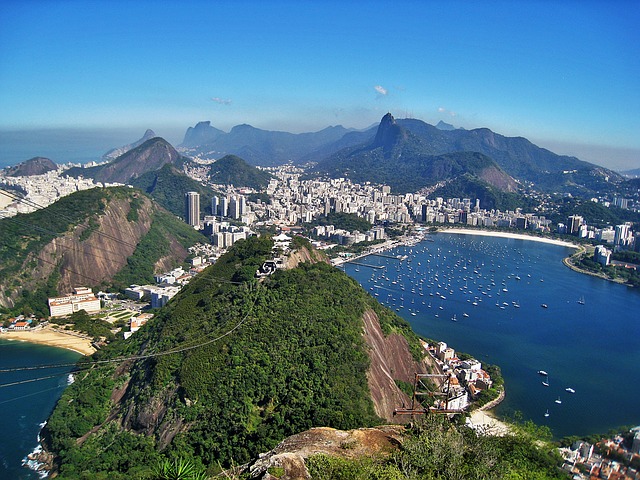New report says restoring Rio de Janeiro’s forests could save $79 million in water treatment costs
- January 3, 2019
- Posted by: administrator
- Category: Environmental, South America

A new study from the World Resources Institute has found that restoring more forests around Rio de Janeiro could save the city up to $79 million in water treatment costs, while dramatically reducing the amount of chemicals used to treat drinking water.
The report was developed by WRI, the Boticário Group Foundation for Nature Protection and The Nature Conservancy (TNC), in partnership with FEMSA Foundation, International Union for Conservation of Nature (IUCN), Instituto BioAtlântica (IBio) and Natural Capital Project.
Rio de Janeiro hosts the world’s largest water treatment plant – the Guandu Water Treatment Station provides 90% of the city’s water and is increasingly grappling with water quality problems. One challenge is that forest loss and landscape degradation upstream of the city is causing soil erosion, which generates more pollution, and fills reservoirs with sediment instead of water. This is leading to costly water treatment and dredging needs.
Supplying water to 9 million people is putting tremendous pressure on the Guandu treatment plant. Even a small rate of pollution can result in high costs because of the volume of water moving through it.
The challenge is intensifying—to meet the city’s demand in 2030, supply of treated water may need to increase up to 50%.
An innovative strategy to cost-effectively deal with this water pollution looks beyond the city’s treatment plant and into its surrounding forests. Rio de Janeiro is surrounded by forested hills.
Forests filter water and reduce cities’ water treatment costs
Trees naturally filter the water that runs through them, providing cleaner water to people downstream and reducing water treatment costs. Forests also protect cities from floods and landslides, and reduce wear and tear on downstream built infrastructure like dams and treatment plants.
Rio’s water managers are already experimenting with using forest protection and other “natural infrastructure” for cleaner water.
The water utility, CEDAE, through its ongoing “Replanting Life” program has been restoring riverside areas and protecting springs. The local hydropower company, LIGHT, has reforested approximately 600 hectares of land since 1992. The Water and Forest Producer Program, primarily funded by the Guandu Watershed Committee, has already raised over $3 million for natural infrastructure efforts like reforesting important areas of the river basin and protecting standing native forest.
A cost-benefit analysis for natural infrastructure
WRI’s new report provides a cost-benefit analysis of natural infrastructure development in Rio de Janeiro, which can help government officials understand and justify investments in forests for water management objectives. The Institute applied its Green-Gray Assessment, a tool that helps water-dependent companies and investors examine the costs and benefits of utilizing green infrastructure in combination with traditional, built infrastructure.
The study has found that restoring 3,000 hectares of native forest in targeted locations in Rio would require an initial investment of about $26.4 million, but would avoid costs of $79 million over 30 years, or $2.6 million per year.
Investing in forests would also spare the use of an estimated 4 million tons of chemical products and 260MWh of energy in water treatment over the next 30 years.
The report is the second in a series of studies on natural infrastructure for water in Brazil and Mexico. The first report assessed water supply in São Paulo and found that restoring 4,000 hectares of forest could generate cost savings of $106 million for the local water company.
The full article was originally published as a blog on www.wri.org
